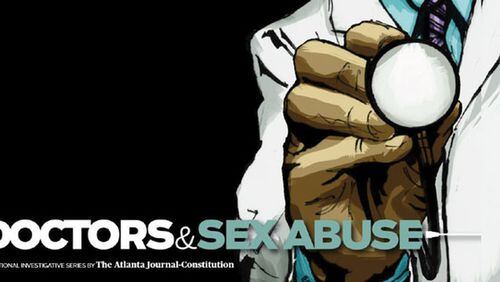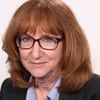No one had accurate data on doctor sex abuse cases until the AJC in 2016 published a national investigation based on its review of thousands of medical board and court documents. The series revealed that disturbing cases — rapes by OB/GYNs, seductions by psychiatrists, molestations by pediatricians and fondling by anesthesiologists — happen far more often than anyone had acknowledged. The newspaper found more than 3,100 doctors who had faced such accusations from 1999 to 2015, exposing a broken system that leaves patients at risk of sexual predators.
Here are highlights of the 2016 investigation:
- Some of the nation's most admired and accomplished physicians have sexually violated patients. The AJC reported that violators included the president-elect of a national medical society, a member of a state medical board, the team doctor for a professional basketball franchise and the president of a teaching hospital affiliated with Harvard University.
- Serial offenders often target vulnerable patients. Victims included children, the disabled, the elderly, immigrants, those suffering from mental illness or patients who were sedated or unconscious. Some doctors abused hundreds of patients.
- Abusive physicians are often allowed to keep their licenses. Medical regulators often view doctor sexual misconduct as the symptom of an impairment or a gap in education, not a cause for punishment. Some doctors who sexually violated patients were returned to practice with as little as a three-day course on appropriate doctor-patient "boundaries."
- Criminal cases are rare against physicians who may have committed sex crimes. Medical regulators have avoided notifying police of possible felony sexual offenses, even in cases with trails of victims. When doctors are charged, they may get lenient treatment from courts.
- In most states it's difficult for patients to find out if a doctor has been disciplined. Medical regulators in some states issue private letters of concern or confidential orders in sexual misconduct cases, and boards may not mention when a doctor is facing criminal charges. Some public disciplinary orders are vague or obscure or have key passages deleted.
- While condemning sexual abuse, the medical profession resists solutions. The American Medical Association has never independently researched the problem, nor made it a priority. But it has fought to keep secret a federal database of disciplined physicians. Doctor groups in several states have also opposed attempts to strengthen legal protections for patients. The AJC created a report card on key patient protection laws in every state, finding that only Delaware had comprehensive protections. Since then, only Wyoming has significantly strengthened its protections, increasing the criminal penalties for sexually assaulting a patient and giving the medical board more authority in punishing physicians. See what the legal gaps are in every state at doctors.ajc.com/states/
About the Author
Editors' Picks
The Latest







